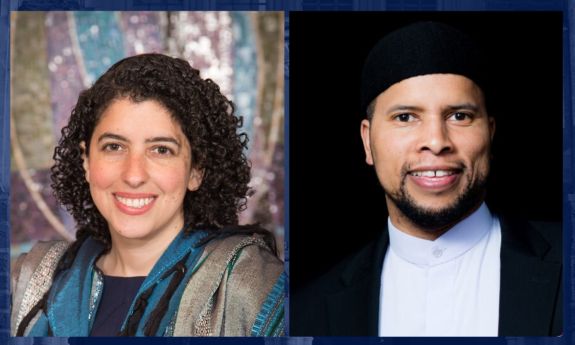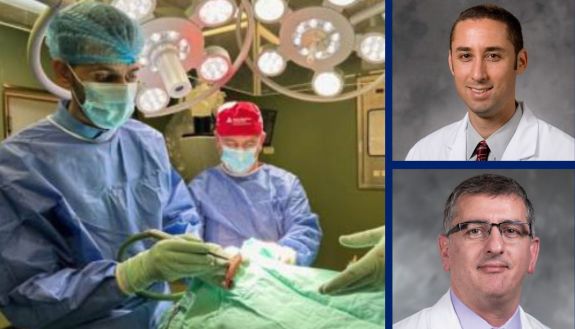Dialogue and Understanding Key Message from Duke Clergy
The two will participate in a forum on ways to discuss the war in the Middle East

Both will take part in the 2024 Provost’s Forum: “Universities and the Israel-Palestine Conflict: How to Discuss, How to Engage?” Monday in the Karsh Alumni & Visitors Center, joining a panel of Duke scholars and leaders on dialogue and discourse amidst differences . (The event is full but members of the Duke community can watch a live simulcast in Page Auditorium beginning at 8:55 a.m.)
“Just reflecting together as two chaplains, like, what is our role? How can we help students understand?”
Joshua Salaam
The forum will “explore ways a university can guide an environment where mutual learning can flourish in the tense environment the conflict has generated on college campuses nationwide,” according to an event description.
Unlike a number of other universities, student-led gatherings related to the war in Gaza remained largely peaceful last year at Duke. Salaam said he is not sure exactly why that was the case.
“It was a blessing from God that we didn't have more students getting suspended and, you know, doxed and … ruining their jobs and things like that,” he said. “At the same time, a student can say, ‘We consider that like a sign that we didn't do enough,’ and they don't see that as a blessing. They see that as a missed opportunity.”
Added Friedman: “I think Duke administration and folks who were dealing with what could happen were really thoughtful and intentional about how to react to whatever might happen. There was a lot of conversation, a lot of policy, a lot of relationship-building behind the scenes that I think a lot of our students really appreciated.”
Both leaders acknowledged the past year made their roles supporting students and the Duke community even more challenging than usual. But they believe their relationship serves as a model for promoting understanding and safe dialogue about difficult topics.
“Just reflecting together as two chaplains, like, what is our role? How can we help students understand?” Salaam said. “How can we make sure the students don't hate each other? And we've been having some conversations about that. She's done some work within her community to have engagement. I've done work in my community, and we're figuring out how to do something between the communities, but it takes a lot of work, takes a lot of relationship building, and a lot of time, and I'm committed to that.
“So my role hasn't changed, but I feel like I have done a lot of growth in the last year.”
Friedman said the past year has been “very intense for our community.”
“How do we serve them best under the pressure of an enormous amount of grief, anger, sadness, frustration and so on?” she asked.
“Two things have always been true for me and my work. One is that Israel has been an essential part of the work that we do because of its historic and personal connection to the Jewish people,” she said. “And the second thing is that the Jewish community is diverse, and not all Jewish people feel the exact same way about every single issue. And that has never changed in the Duke Jewish community,” she said, adding: “But it has never been more highlighted than in the past year.”
Registration for the 2024 Provost’s Forum is now closed. A live simulcast of the program will be shown in Page Auditorium for members of the Duke community, who are invited to attend any time between 8:30 a.m. and 2:30 p.m. on Sept. 16. No registration is required. Please see the agenda for session details.
RELATED STORY
